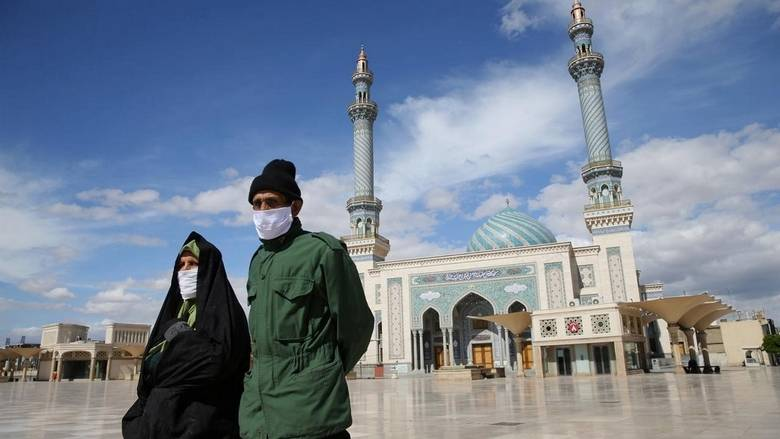Due to Covid-19 Pandemic, Muslims Will Face a Ramadan Like Never Before
Mon 20 Apr 2020, 17:16:55

Days before the holy fasting month of Ramadan begins, the Islamic world is grappling with an untimely paradox of the new coronavirus pandemic: enforced separation at a time when socialising is almost sacred.
The holiest month in the Islamic calendar is one of family and togetherness – community, reflection, charity and prayer.
But with shuttered mosques, coronavirus curfews and bans on mass prayers from Senegal to Southeast Asia, some 1.8 billion Muslims are facing a Ramadan like never before.
Across the Muslim world the pandemic has generated new levels of anxiety ahead of the holy fasting month, which begins on around Thursday.
In Algiers, Yamine Hermache, 67, usually receives relatives and neighbours at her home for tea and cold drinks during the month that Muslims fast from dusk till dawn. But this year she fears it will be different.
“We may not visit them, and they will not come,” she said, weeping. “The coronavirus has made everyone afraid, even of distinguished guests."
In a country where mosques have been closed, her husband Mohamed Djemoudi, 73, worries about something else.
“I cannot imagine Ramadan without Tarawih,” he said, referring to additional prayers performed at mosques after iftar, the evening meal in which Muslims break their fast.
In Jordan the legislature, as a team with neighboring Arab nations, is required to report a fatwa laying out what Ramadan customs will be allowed, however for many Muslims, it as of now feels so extraordinary.
From Africa to Asia, the coronavirus has thrown a sorry excuse for anguish and vulnerability.
Around the souks and avenues of Cairo, a rambling city of 23 million individuals that regularly never dozes, the coronavirus has been deplorable.
"Individuals would prefer not to visit shops, they are terrified of the infection. It's the most exceedingly awful year at any point," said Samir El-Khatib, who shows a slow down to the memorable al-Sayeda Zainab mosque, "Contrasted and a year ago, we haven't sold a quarter."
During Ramadan, road dealers in the
Egyptian capital stack their tables with dates and apricots, sweet organic products to break the quick, and the city's dividers with towers of conventional lamps known as "fawanees".
Egyptian capital stack their tables with dates and apricots, sweet organic products to break the quick, and the city's dividers with towers of conventional lamps known as "fawanees".
But this year, authorities have imposed a night curfew and banned communal prayers and other activities, so not many people see much point in buying the lanterns.
Among the few who ventured out was Nasser Salah Abdelkader, 59, a manager in the Egyptian stock market.
"This year there's no Ramadan mood at all," he said. "I'd usually come to the market, and right from the start people were usually playing music, sitting around, almost living in the streets.”
Dampening the festivities before they begin, the coronavirus is also complicating another part of Ramadan, a time when both fasting and charity are seen as obligatory.
In Algeria, restaurant owners are wondering how to offer iftar to the needy when their premises are closed, while charities in Abu Dhabi that hold iftar for low-paid South Asian workers are unsure what to do with mosques now closed.
Mohamed Aslam, an engineer from India who lives in a three-bedroom apartment in downtown Abu Dhabi with 14 others is unemployed because of the coronavirus. With his apartment building under quarantine after a resident tested positive, he has been relying on charity for food.
In Senegal, the plan is to continue charity albeit in a limited way. In the beachside capital of Dakar, charities that characteristically hand out "Ndogou", baguettes slathered with chocolate spread, cakes, dates, sugar and milk to those in need, will distribute them to Koranic schools rather than on the street.
Meanwhile in Indonesia, the world’s largest Muslim-majority country, some people will be meeting loved ones remotely this year.
Prabowo, who goes by one name, said he will host Eid al-Fitr, the celebration at the end of the fasting month, via the online meeting site Zoom instead of flying home.
"I worry about the coronavirus," he said. "But all kinds of togetherness will be missed. No iftar together, no praying together at the mosque, and not even gossiping with friends.”
No Comments For This Post, Be first to write a Comment.
Most viewed from International
Most viewed from World
AIMIM News
Latest Urdu News
Most Viewed
May 26, 2020
Do you think Canada-India relations will improve under New PM Mark Carney?
Latest Videos View All
Like Us
Home
About Us
Advertise With Us
All Polls
Epaper Archives
Privacy Policy
Contact Us
Download Etemaad App
© 2025 Etemaad Daily News, All Rights Reserved.

.jpg)
.jpg)






.jpg)



.jpg)
.jpg)
.jpg)
.jpg)
.jpg)
.jpg)
.jpg)
.jpg)
.jpg)
.jpg)
.jpg)
.jpg)

















